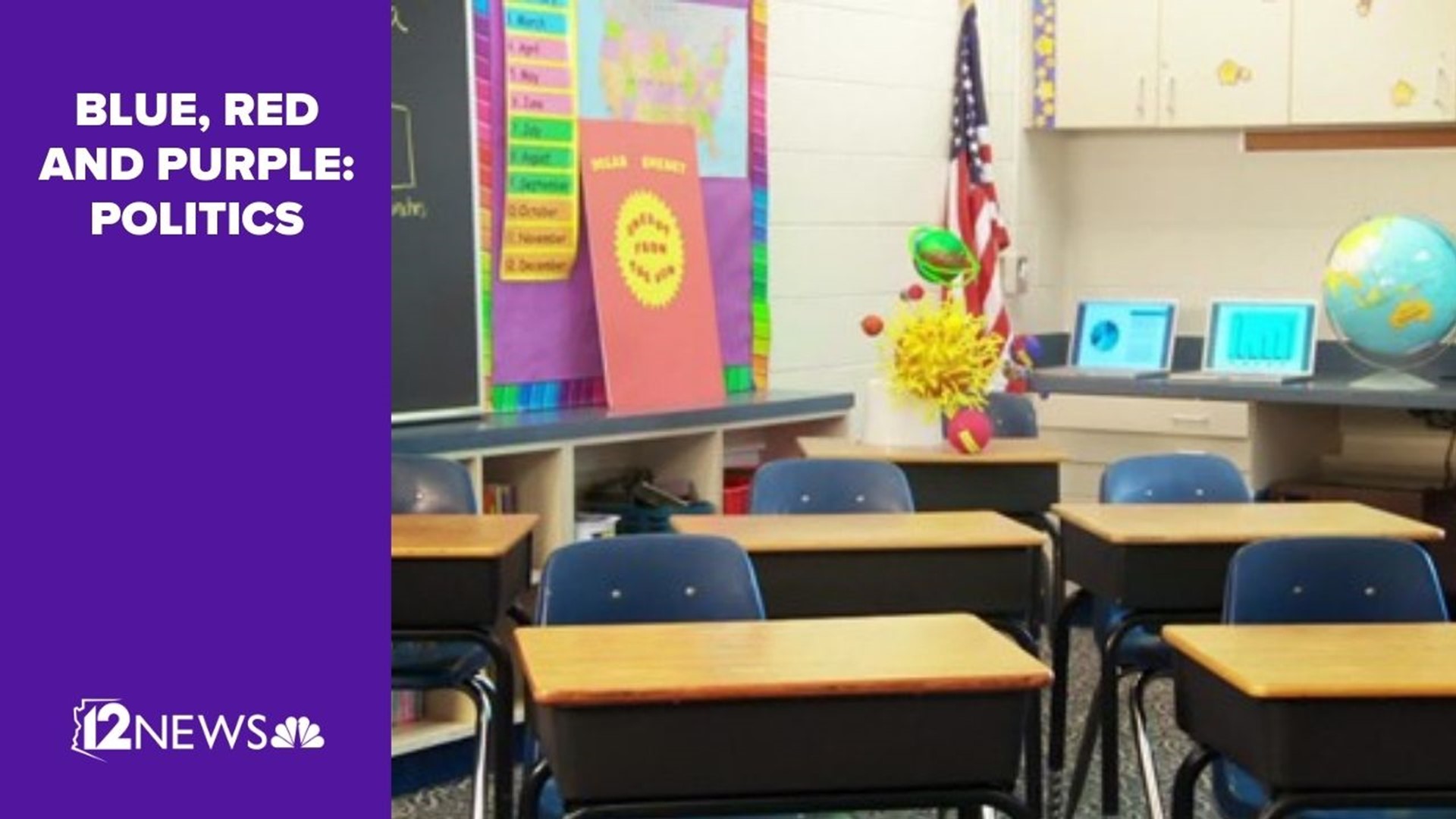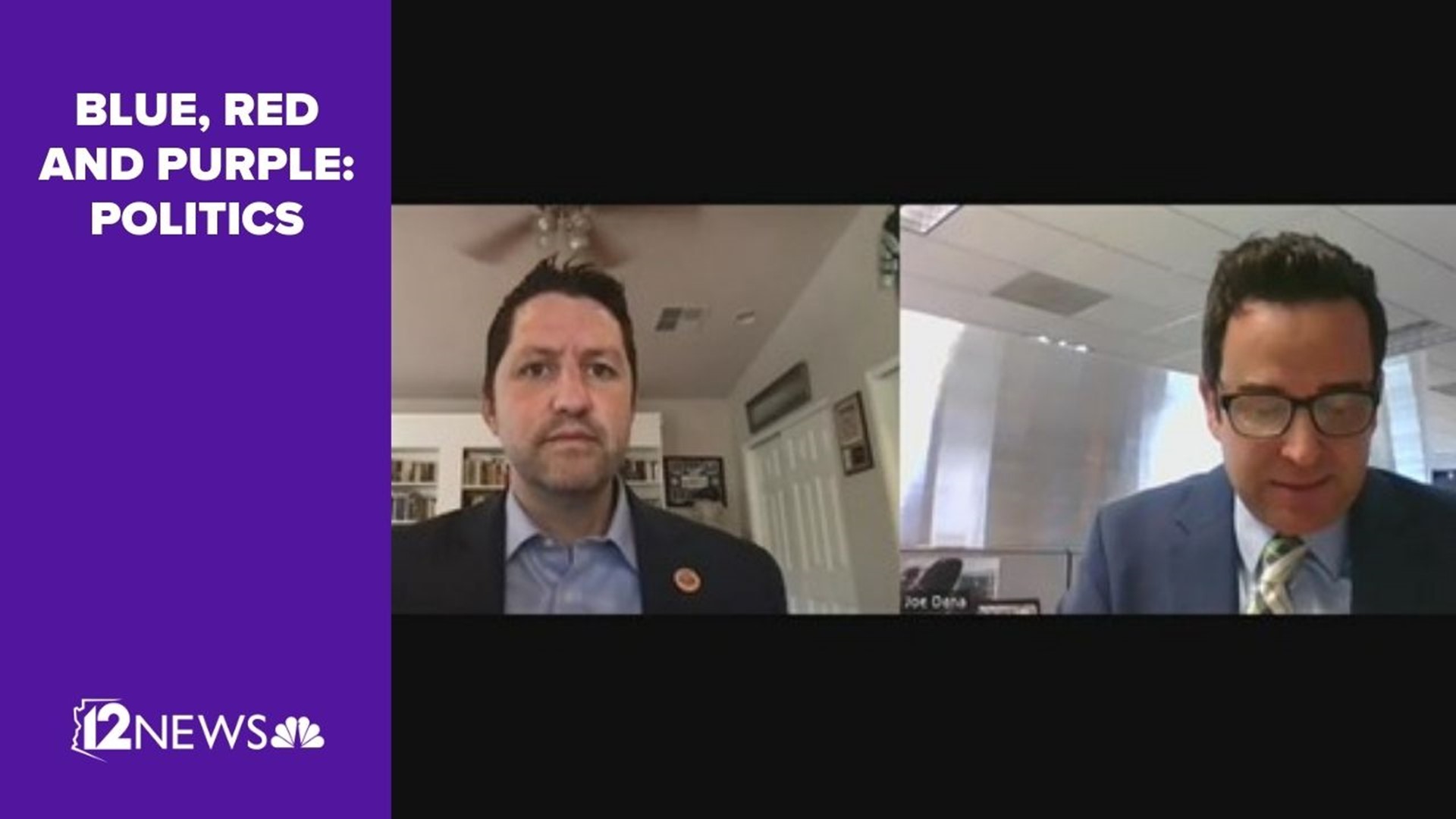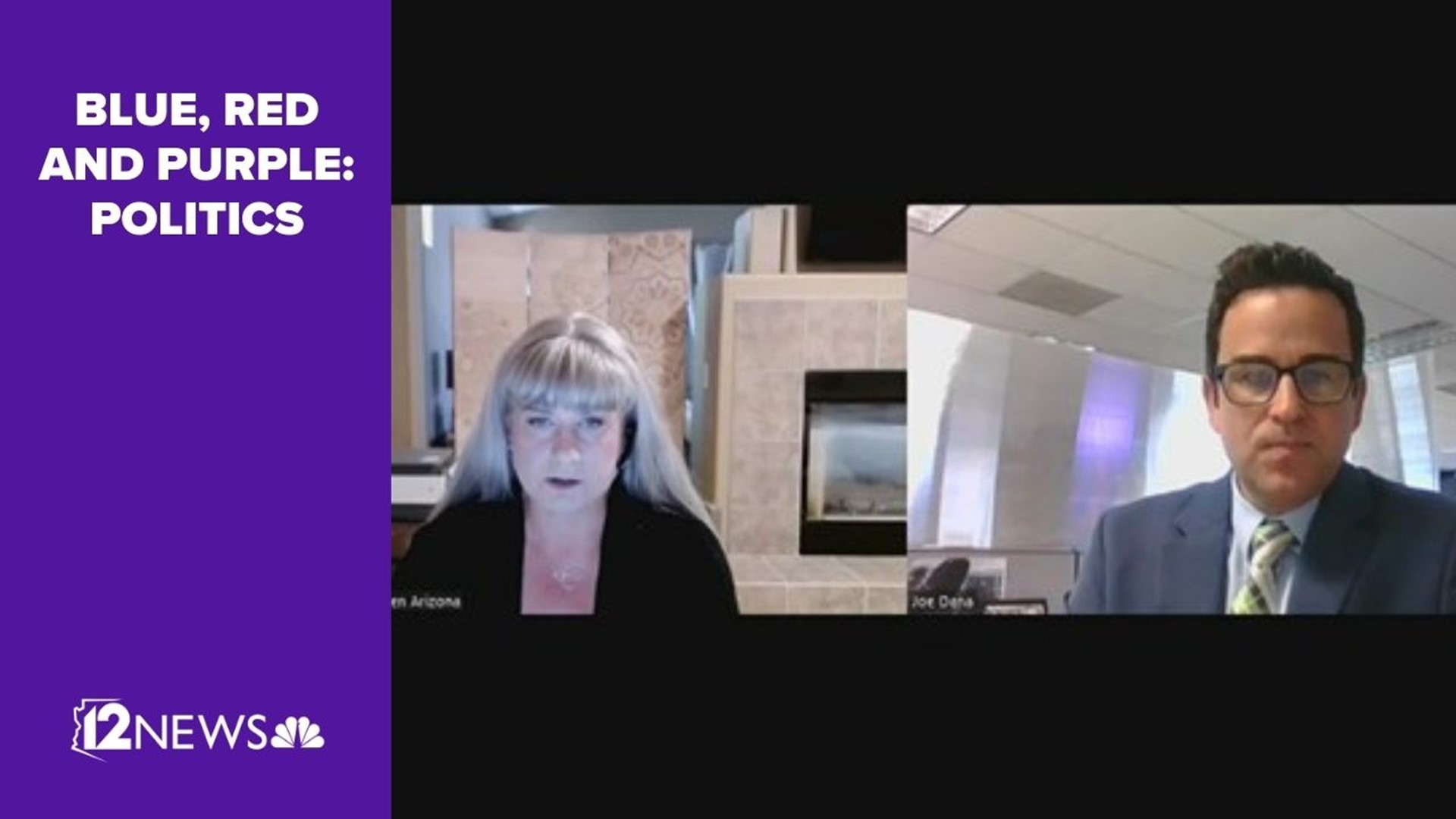ARIZONA, USA — Arizona’s Republican lawmakers made history Friday night, passing a universal school vouchers bill that drew celebrations and fury.
The conservative Goldwater Institute called the bill “a major victory for families wary of a one-size-fits-all approach to education.” The Arizona Education Association warned the program will create a parallel structure in education that will drain public schools.
Republicans switch their positions
The voucher law would mean all Arizona families that choose not to send their child to a public school will have the option to receive a debit card with an estimated $7,000 for educational expenses. The money, which would otherwise go to public education, may be spent on private school tuition or other costs associated with alternative schooling for that particular child.
“It’s not just for private schools. This is also for micro-schooling, for homeschooling, educational therapies and tutoring,” said State Senator Paul Boyer (R), who previously said he was hesitant to vote for a universal voucher bill. Boyer joined all Republicans Friday night to vote yes, putting the bill over the top.
“I’ve always supported Empowerment Scholarship Accounts,” Boyer said, explaining his yes vote. “I voted for it because it includes Title 1 students, which is near and dear to my heart. I do believe based on the polling that voters will support it.”
Boyer, a school teacher, was one of several Republican legislators who previously had concerns about the program because of its expansiveness and lack of accountability. But over the past couple of weeks, they changed their position and supported the measure.
One reason for the switch was that the legislature added more than $1 billion to public schools in 2023 and an ongoing infusion of $526 million to the annual base revenue. The funding is contingent on the legislature raising the aggregate expenditure limit next year, something it did earlier this year.
No academic or financial accountability measures
Boyer cited a February poll from Public Opinion Strategies that suggests 65% of Arizonans surveyed support allowing all K-12 students access to Empowerment Scholarship Accounts (ESA’s). But Arizonans have historically opposed universal vouchers and voters easily rejected a similar proposal 65%-35% at the ballot box in 2018.
State Senator Christine Marsh (D) attempted unsuccessfully to attach amendments to the bill Friday that would have required private schools accepting students with vouchers to implement academic standards testing, require fingerprint card clearance of employees and keep records of demographics of families using the voucher money.
“We have no financial transparency and we have no academic transparency,” Marsh said. “I’d like to know how many families that earn maybe a million dollars a year are getting voucher money versus how many families earning maybe 30 or 40,000 a year are getting voucher money.”
Senators Christine Marsh (D) and Paul Boyer (R) discuss the universal voucher debate.
Rebecca Gau, Executive Director of Stand For Children tells 12 News she believes sentiment among Arizona voters has not changed. Gau cited a May poll by Alloy Analytics that suggests only 30% of voters polled support full ESA vouchers.
“There’s a real concern about the fact the money goes to families that don’t need it,” Gau said. “It just seems counter-intuitive for the state’s goals to have a constitutionally required educational system and the goal is to create strong a strong economy and strong schools and yet we’re going to throw hundreds of millions of dollars to completely unaccountable organizations.”
Hear more from Rebecca Gau, Executive Director of Stand for Children Arizona.
The bill’s sponsor, House Majority Leader Ben Toma, said parents would provide the level of accountability needed.
“They know what’s best for their children, and we should trust them to do the right thing,” Toma said.
How will universal vouchers impact public schools?
It’s unclear what impact the voucher program will have on the state’s education budget. Currently, about 11,800 students are enrolled in the ESA program and receive voucher money.
According to the Joint Legislative Budget Committee, about 30,000-40,000 students in private schools and home-schooling would become eligible for universal vouchers, costing the state upwards of $180 million. That money would be taken from the general fund, not the education budget. However, if a student switches from a public school to a private school in the future, that money would come from the general education fund.
“The biggest concern is it’s going to drain money away from public education funding,” said Brenden Foland, Government Relations Director for the AEA.
A statement released by the Goldwater Institute argues the program will not hurt public schools because the ESA program costs roughly $6,400 for a typical student, compared to the more than $11,000 that state and local taxpayers spend on each public school student.
“The ESA program simply ensures that each student’s funding follows the student, just like it already does each time a student leaves a public school for a different public school using the state’s open enrollment option,” the statement reads.
We will be subsidizing the affluent?
Gau says there are questions about how universal vouchers affect “what we think in terms of education reform and fair play.”
“When we talk about addressing education issues in Arizona, there is such a vast need for the future workforce in Arizona which is largely low-income families. It flies in the face of meeting the needs of the state when you are giving the amount of money to families that don’t need it,” Gau said.
Randy Parraz, Executive Director of the AEA said the program will “subsidize the affluent who can already afford a private school education” while leaving lower-income community schools 'still starved for resources.'"
Opponents of the bill have the option to launch a referendum campaign to place the measure on the ballot. If they collect enough signatures within the next three months, the program wouldn’t be implemented unless voters approved it in 2024.
“At this point, there are lots of ideas being considered but as far as a plan there is no plan in place yet. But everything is on the table,” said Parraz.
Up to Speed
Catch up on the latest news and stories on the 12 News YouTube channel. Subscribe today.



